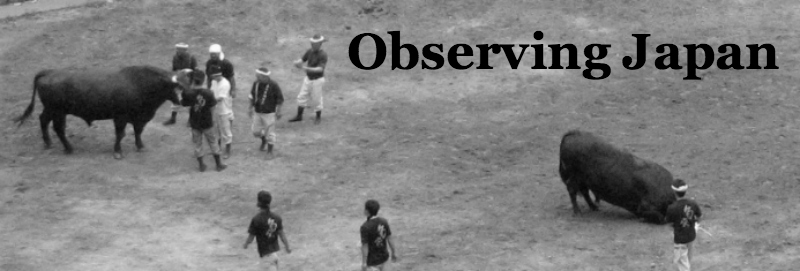The exchange of fire between the North and South Korean militaries that left two ROK Marines dead and at least a dozen wounded (see the roundup at Wired’s Danger Room blog), following closely on the heels of revelations regarding a new North Korean uranium reprocessing facility, strengthens hopes that the US and Japan might be able look past Futenma and strengthen their security relationship. The relationship has, of course, had a bit more wind in its sails since the standoff between Japan and China over the maritime collision near the Senkakus.
Can we really draw a straight line from regional instability to closer security cooperation between the US and Japan? Arguably this logic has worked in the past, with North Korean provocations from 1994 onward stirring Japanese policymakers to bolster Japan’s capabilities and launch new bilateral initiatives with the US, ballistic missile defense being perhaps the most notable example. And there are signs that the DPJ-led government is remarkably more realist in its approach to the region than many expected. I think Foreign Minister Maehara Seiji spoke for many in the DPJ when he told an official Chinese foreign affairs publication that he is “by no means a hawk but a realist who values idealism.” The distinction between “hawk” and “realist” is meaningful and says a lot about the DPJ’s approach to foreign and security policy.
To be a hawk in Japanese politics is not just to support a certain set of policies: it is more a cultural identity than a policy stance. It is a worldview that, in addition to wanting to dismantle political and legal constraints on Japan’s security policy, questions the value of Japan’s postwar regime (that which former Prime Minister Abe Shinzō wanted to "leave behind"), supports revising the constitution (not just Article 9), opposes “masochistic” interpretations of history, and promotes traditionalist values. While they cite the threats posed by North Korea and China to justify their policies, the idea of Japan as a great power is valued in its own right — it is not driven by material considerations.
Meanwhile, to be a realist in Japan means much the same as it does in other countries: valuing the sober assessment of national interests, and thinking clearly about how best to secure those interests using the means available. While I think “realism” is often associated with a predisposition towards military capabilities and the use of force, it need not be. As Eric Heginbotham and Richard Samuels argued in a 1998 article in the journal International Security, postwar Japanese leaders have been “mercantile realists,” thinking of Japanese national interests in broader terms that prioritized Japan’s economic position.
The DPJ has thus far been far more realist in its foreign and security policies than has been generally recognized. Like earlier LDP governments it is working to maintain some sort of constructive relationship with China, however difficult, while building closer bilateral ties with other countries in the region that are also concerned about Japan’s rise. The government has signaled that it is willing to invest in Japan’s security, for example announcing last month that the MSDF will increase its purchase of new submarines from sixteen to more than twenty. As this post at Sigma1 notes there are signs that the government’s new National Defense Program Guidelines, which the DPJ has been considering since it took power, will contain a number of sensible proposals to enhance Japan’s security, including a relaxation of the arms exporting principles and relocation of SDF personnel from the north to the south. Is Japan “rearming”? Arguably not. But we are not seeing a passive and pacifist Japan either, despite the idea that the DPJ is “left wing.”
But what about the relationship with the United States? On the face of it, the dispute with the US over Futenma has shown the limits of the DPJ’s realist tendencies, allowing its position on the bases to be driven by domestic political considerations instead of the “national interest.” However, is it really in the interest of either Japan or the US to force bases on an unwilling Okinawan public? The point is not that the DPJ has been particularly sober minded in its approach to the issue, but that it is not altogether clear how the bases in Okinawa serve Japan’s interests, which leads to the larger question of how the US-Japan alliance can best serve the interests of both countries.
This is the big question hanging over the alliance, the question that the two countries may finally be in the process of addressing as they begin consultations in advance of a bilateral summit that is expected to be held sometime in the spring. Will North Korean provocations or Chinese maritime adventurism push the alliance in new directions? If anything, I think regional uncertainty reinforces the trend towards a “strong but limited” security relationship focused deterrence in and around Japan instead of more expansive or grandiose plans for the alliance. And given Okinawan opposition to US bases and the uncertainty regarding the US economy, the countries should be talking about politically and economically sustainable deterrent capabilities.
As such, while developments in the region may lend a certain urgency to bilateral talks about the future of the alliance, it is unlikely that they will push the US-Japan alliance in a drastically different direction than it was already going.
